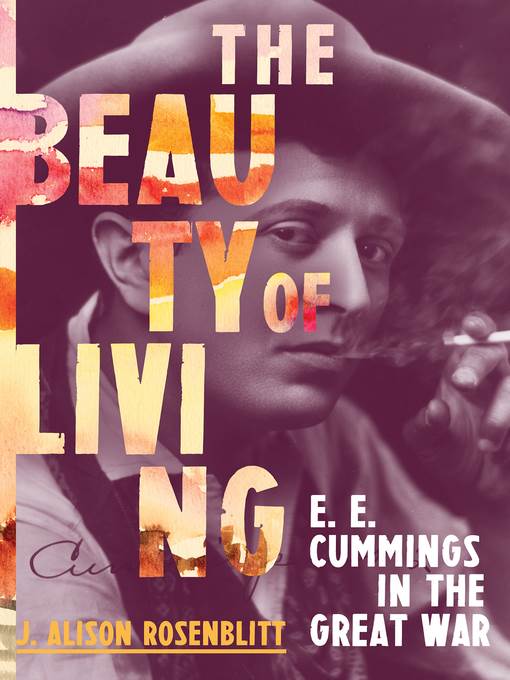
The Beauty of Living
E. E. Cummings in the Great War
- اطلاعات
- نقد و بررسی
- دیدگاه کاربران
نقد و بررسی

Starred review from April 1, 2020
Focusing on a brief period in the life of American poet E.E. Cummings (1894-1962), notably his World War I experiences as a POW and ambulance driver, this fascinating study from Rosenblitt (E.E. Cummings' Modernism and the Classics) sheds new light on elements of his life previously underexamined. As a poet, Cummings is more often celebrated for his typographical idiosyncrasies than lyrical brilliance. However, in many ways he is an iconic figure of the Great War era and the modernist movement that arose out of that cataclysmic crucible. With grace and intelligence, Rosenblitt brings the worlds of Harvard, Cambridge, and "the Front" to vivid life. The horrors of gas warfare, mass slaughter, and syphilis linger as you turn the pages. The historical analysis is powerful and profound, yet Rosenblitt has her focus on much more than politics, battles, and mud. Reading Cummings through the lens of her insight is revelatory, and the brilliance of this work may reestablish his place as a poet of towering importance. VERDICT Placing Cummings in the context of the "War Poets," Rosenblitt breathes new life back into poems too often anthologized and too little read. Highly recommended.--Herman Sutter, St. Agnes Acad., Houston
Copyright 2020 Library Journal, LLC Used with permission.

May 1, 2020
How outrage over brutality and violence informed a well-known poet's work. British literary scholar Rosenblitt creates a perceptive, captivating portrait of the modernist Edward Estlin Cummings (1894-1962), focusing on his early years and experience during World War I. Cummings, she argues persuasively, "remained a war poet until the end of his life. His sympathy with the smallest of creatures, and the beauty that he saw in the world, come out of the destruction that he saw during the war." Cummings grew up in Massachusetts; his father, minister of Boston's progressive South Congregational Church, was socially liberal but, within his family, "deeply authoritarian," generating in his son a "suppressed rage and sense of failure" that led, increasingly, to personal and literary rebellion. At Harvard, cummings was drawn to "Decadence, classicism, Futurism, and poetry." When war broke out, he volunteered as an ambulance driver in France, a decision that felt willful yet still one that his father would approve. "It was defiance without actual defiance," Rosenblitt observes. Once in Paris, logistical problems left him and his friend William Brown at large for a month while they waited to be processed. During that time, he fell in love with Marie Louise Lallemand, a prostitute, which Rosenblitt characterizes as a deeply profound relationship. Cummings "clung to his love" for her "because to him she embodied everything about beauty and tragic nobility that would seem to give some romanticized meaning to war and death." Shortly after beginning their service as ambulance drivers, on the basis of ill-considered letters, cummings and Brown were arrested for being German sympathizers. Through his father's vociferous efforts, cummings was released after 3 months of imprisonment, an experience he chronicled in visceral detail in The Enormous Room. Besides insightful analyses of cummings' poetry, Rosenblitt presents him as an accomplished artist, with 74 pieces at the Metropolitan Museum of Art. A graceful, sympathetic biography of an innovative American poet. (16 pages of illustrations)
COPYRIGHT(2020) Kirkus Reviews, ALL RIGHTS RESERVED.




دیدگاه کاربران